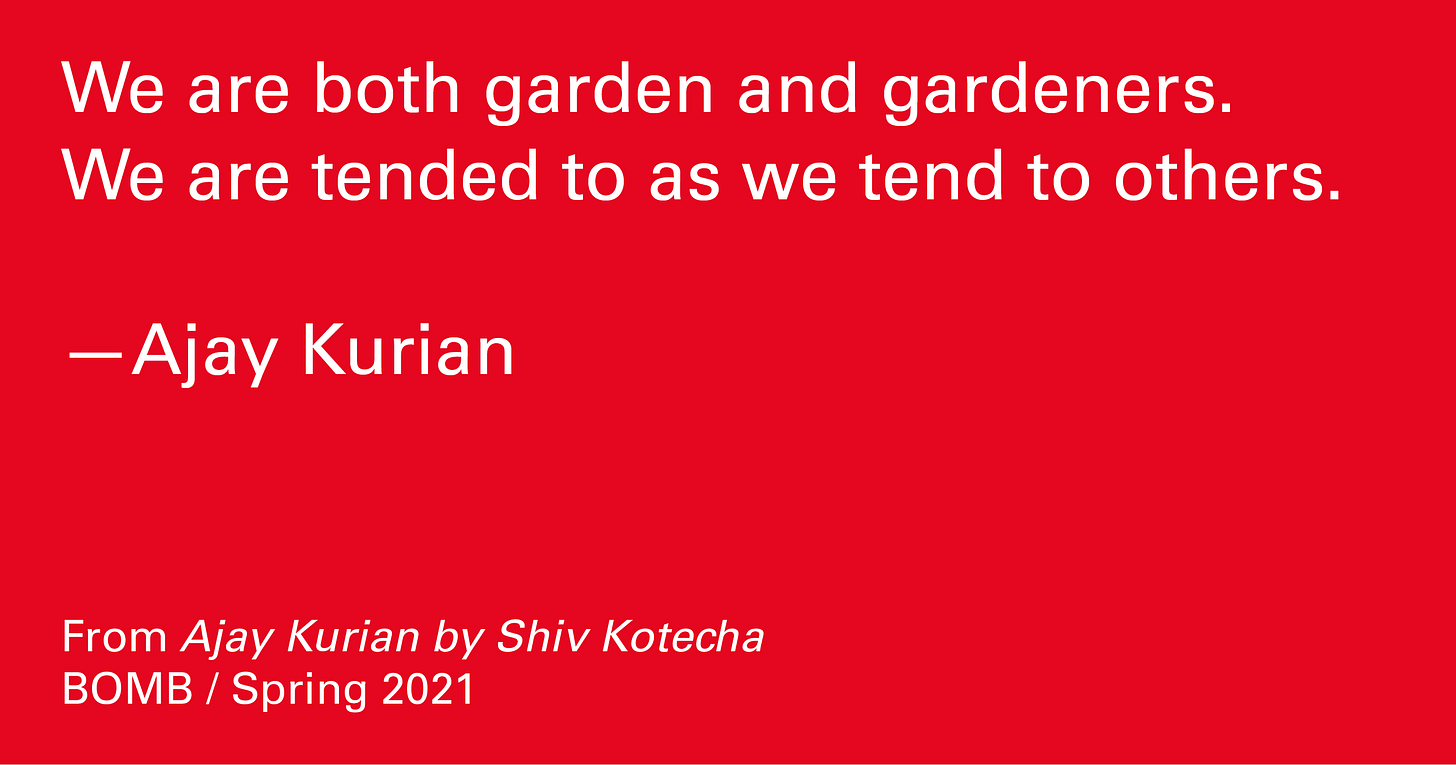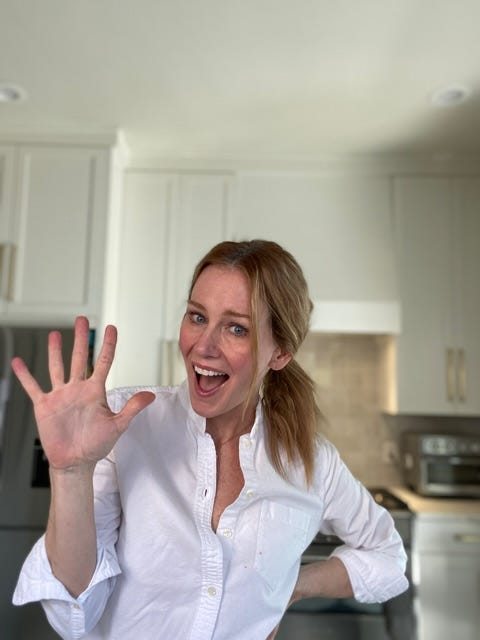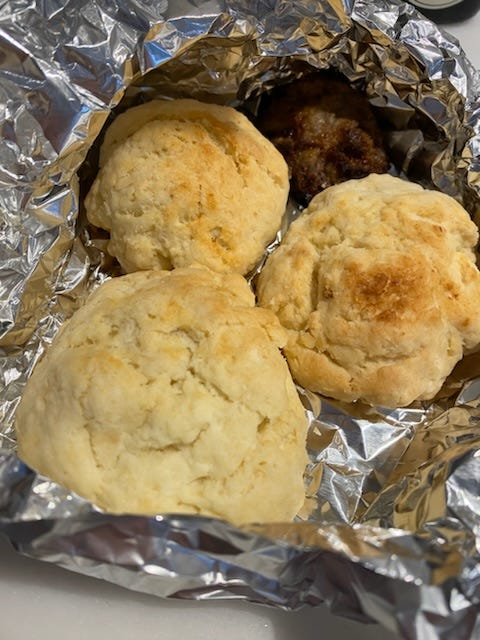writing Blood, but what I know now is that I hadn’t gone deep enough. I may never go deep enough, but where I am now with some of the things that happened during my childhood is in a place of much better and richer understanding than when I completed that book.
I thought I had forgiven, but I hadn’t. And I know I hadn’t because of how I felt. Publishing Blood came with tremendous relief, but I was still carrying significant weight, even after I’d told the world as much as I could about who we were, what happened, and how I thought it all added up or didn’t. I was still heavy with sorrow — my intellectualizing didn’t help as much as I hoped it would.
Yesterday I was reading about buried feelings. And I was thinking about it in terms of what I wrote about on Friday:
I skip over my feelings because my ability to acknowledge them is underdeveloped…
I flashed on a violent episode I wrote about in Blood in which my father threw a lamp through the kitchen window. We were all traumatized by his outburst, of course, but the next day, he demanded we all get dressed and go to Mobile (the nearest metropolis). For what, I don’t recall, probably shopping or something, but what is clear is that he wanted to have an outing that he thought might overshadow the lingering effects of the previous night’s horror. My mother was upset and crying, my sister and I were numb, I guess, and probably wanted to go just to get to go somewhere, but I will never forget him telling her to “stay home and rot,” which completely undermined her right to have feelings about what had happened. He wanted everyone to smile and act like they liked what was happening, (he literally said that sometimes) which is, yes, sick.
I thought I understood the depth of what hiding my feelings was about — it was so everything would look good on the outside, right? Yes, appearances were important, but deeper than that, my father also asked us to hide our feelings so he wouldn’t have to acknowledge the harm that he’d done by losing control of himself. He wanted everyone to act like nothing had happened, because even he knew throwing lamps through windows is not acceptable. Not only did he not want the world to see the unacceptable thing he’d done, he didn’t want to see it himself. If he had honestly seen it — if he had allowed us our feelings and allowed us to express them and atoned for his actions — he would’ve had to admit he was powerless over alcohol. If he’d done that, he’d have had to get sober, because there was no way he would’ve been able to justify his drunken behavior. A healthy person doesn’t choose to keep using when faced with clear evidence that doing so is wrecking their loved ones’ lives. But a sick person will choose their addiction over sanity and say it wasn’t that bad, don’t make such a big deal out of it, why are you so upset, just get over it, but what about all the other things I do for you, hahahaha….
Oh, the scaffolding we erect to protect our addictions.
And oh, the people pleasers we create when we do so.
I know none of that was in his or anyone else’s mind. When we are active in our diseases, we can’t see anything but the narrow view those diseases provide us. But he might’ve just as well told me it doesn’t matter how you feel, honey, this is about me and the only part that’s about you is you playing your part in making sure I don’t have to face reality. You must bury your feelings so my sickness isn’t reflected to me because all I know is, I can’t change. I don’t care what this charade requires from you.
And I’ve got some news: My mother did the same thing in her own way.
So, no wonder I didn’t know how to acknowledge my feelings. Not only did no one show me how, they outright defied me to learn.
The next frontier: learning how not to blame.
What’s more important than understanding all of that, is that I don’t blame my parents for making me a people pleaser who is unable to acknowledge her feelings. What I know now is that they didn’t come to their marriage with very many assets and couldn’t acknowledge their own. Dysfunction is inherited. They were only doing what they had been shown to do, just as I did what they showed me to do until I knew how to do better. Why they didn’t ever figure out how to do better, I don’t know, but I can’t concentrate on that anymore because I know the work I have to do now is figuring out what can be done to heal what I can. I want to stop the generational dysfunction that plagues my family, and the only way I can do that is to keep reaching for the highest within myself.
My highest is my compassion, my grace, my empathy, my forgiveness.
That feels so much better than holding onto what hurts and re-wounding myself with behavior that is sure to do nothing else. Reaching for my highest is giving myself the most love I can receive.
I have a relationship in my imagination with both of my parents’ spirits. I often think of my father during my morning yoga sessions, and like to visualize him in crow pose — his skin is clear, his body is balanced, and his mind trusts as he joins me in silence. His presence is reassuring and I often cry when I feel myself truly and humbly invite him to be with me. That’s all it takes. My mother often comes to me in moments of artistic concentration. She isn’t a critic, but a strong guide, reminding me not to settle, which is funny because she was always in such a hurry she did little else with her endeavors.
Of course, I cultivate these relationships. They are part of my solitude. They are part of my healing. They bring me peace, and that is something I am determined to cultivate in my life.
Clowning in the kitchen the other morning when I sent my sister a good morning selfie.
I hope y’all have a great week. I’ll be putting my two cents in as we go.
Peace, Love, and Healing to you all.
AM
I made some biscuits Sunday morning. I sent out a newsletter from my website yesterday and put the recipe in there, but I’ll put it here too in case y’all don’t get that.
This is a riff on a New York Times recipe, which calls for heavy cream instead of milk, and it has been really working.







This is a remarkable, deeply generous post. Thank you. "Not-seeing" is a requirement in abusive homes; I'm just starting to grok that, at the age of 59. It is assumed that if trauma is followed up with normalcy --"Let's go shopping in Mobile" -- then no one has time to feel what happened, including the abuser. And I think you're right about looking at it being directly connected to Step 1, and powerlessness. I so appreciate your writing, as always. (And on another note: having written in the neighborhood of 8k recipes in my professional life, I have never seen the instruction "Acquaint the flour with the butter." Perfection.)
The Autotelic has turned-even more so now-into full bore soul searching and soul saving group therapy. You’re out ahead of us on all of this and guiding us gently each time you come back and share what you’ve learned, what you’ve become. These posts are selfless and revelatory. You are a Heart Surgeon of a different nature and I swear to you every day since you came back has been a little bit easier for me because of you. And your thoughts and feelings. I feel like I’m progressing, if just a tiny bit, each time you post. The fact that you touched on the sentence I zeroed in on and quoted from your last post just shows me once again how in synch you are with the bigger picture. I watch in wonderment. I read your words and I’m that child, so badly traumatized, able to look inside myself and at least somewhat understand “why.” I’m not a bad person. I’ve tried my best. I’m trying to help others who suffered the same horrors. You just show me I can do better and even sometimes how. Thank you. Seeker. Beacon. Allison. ox JB